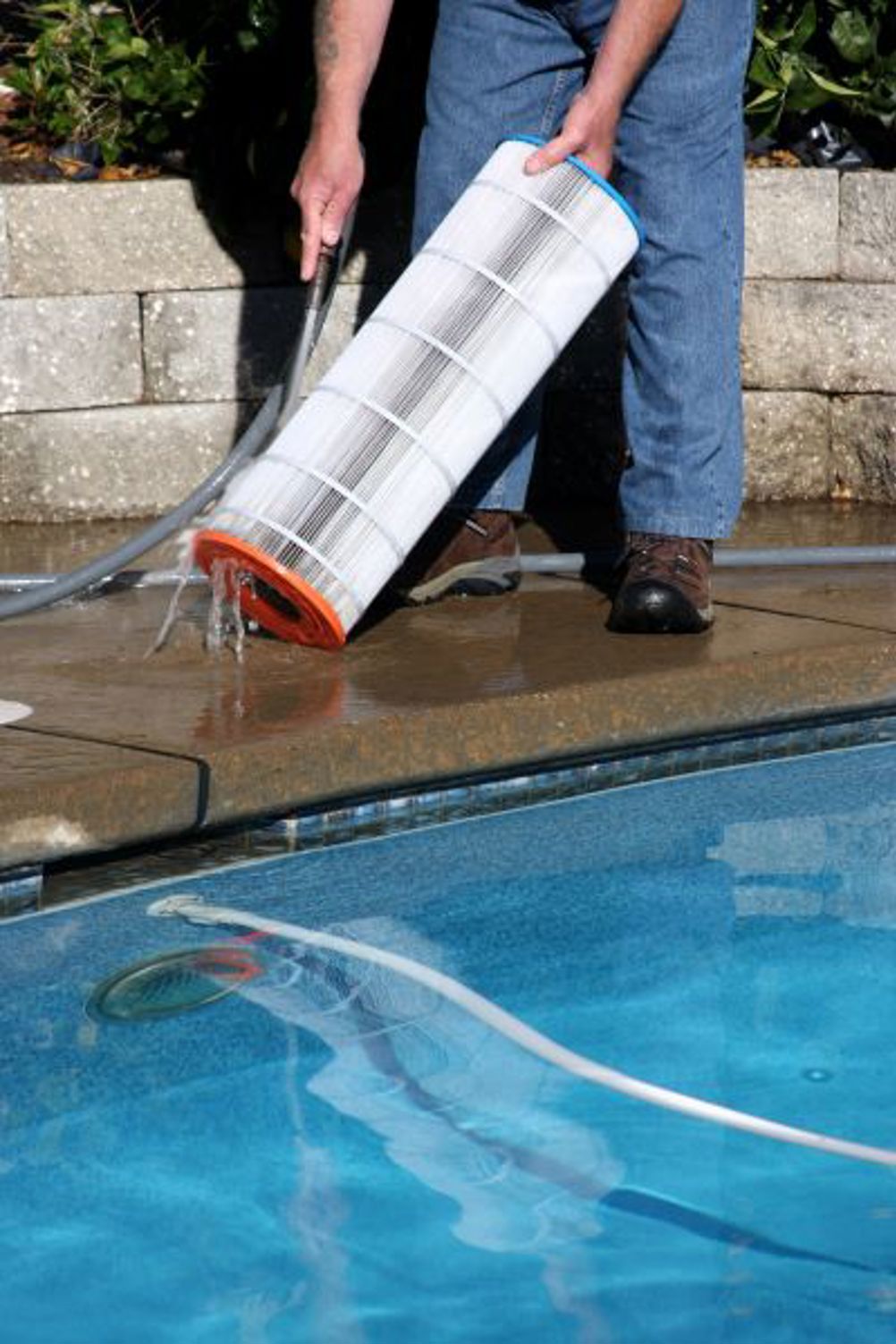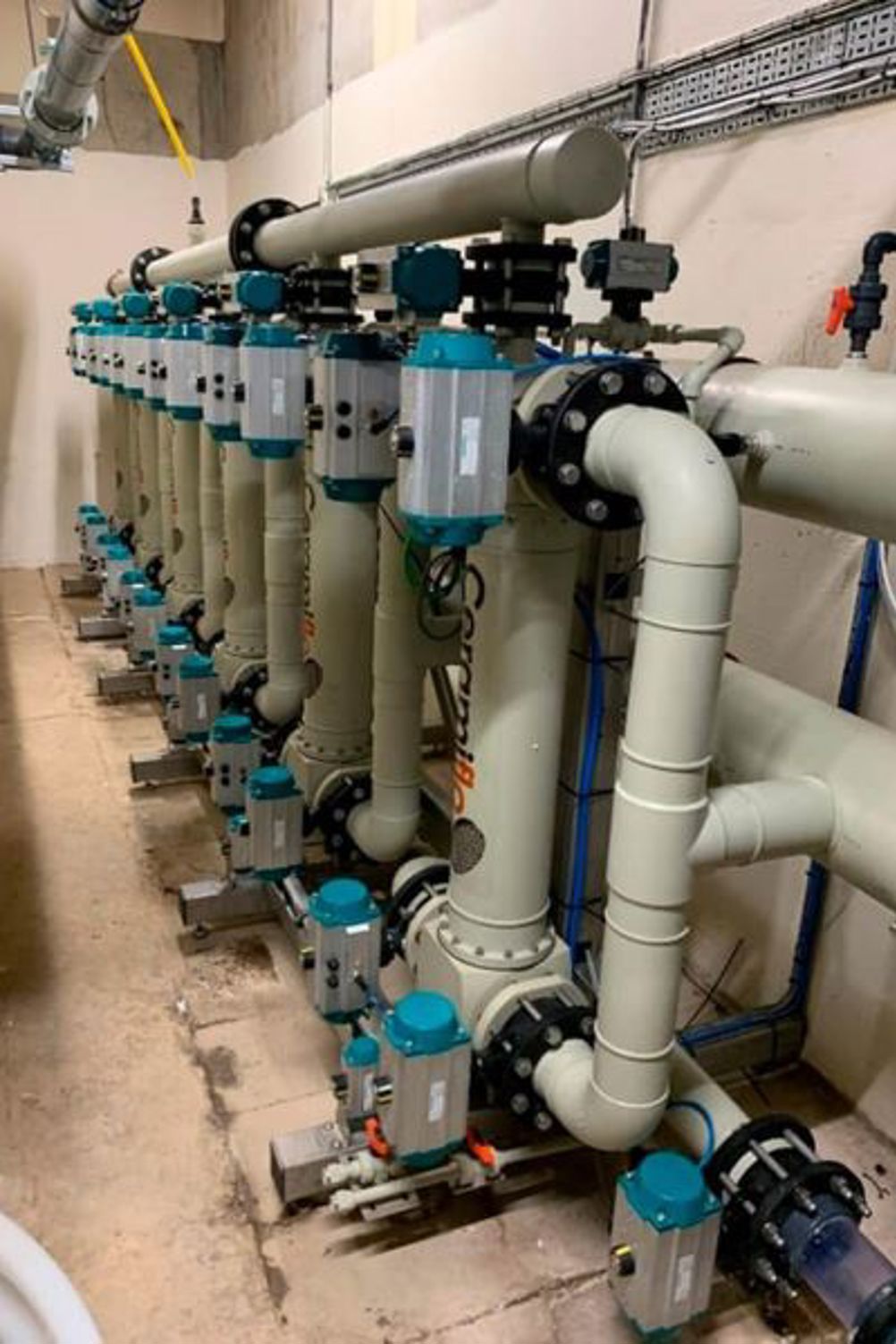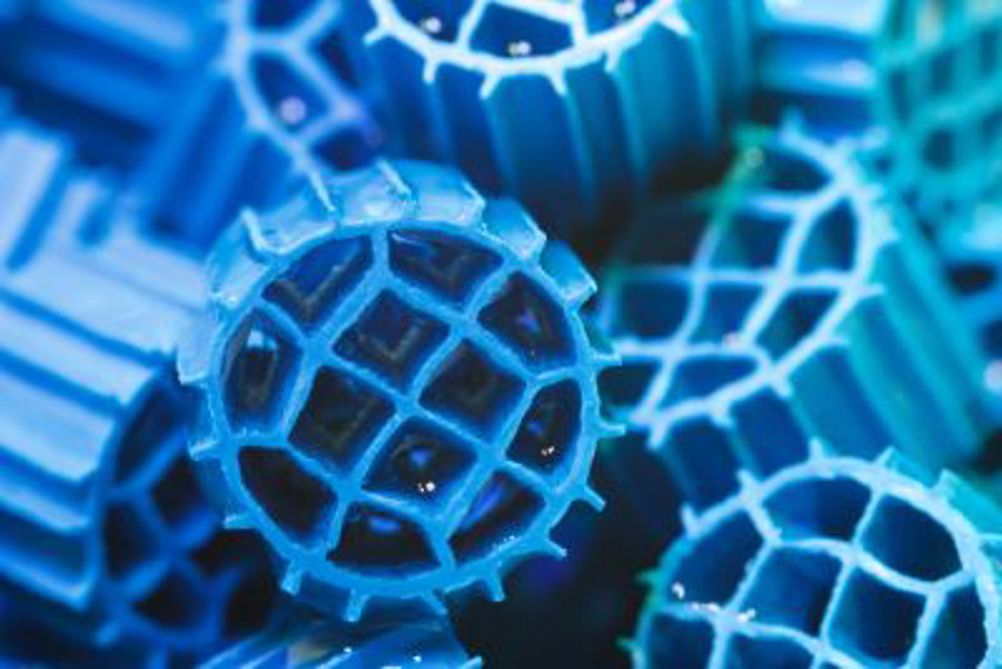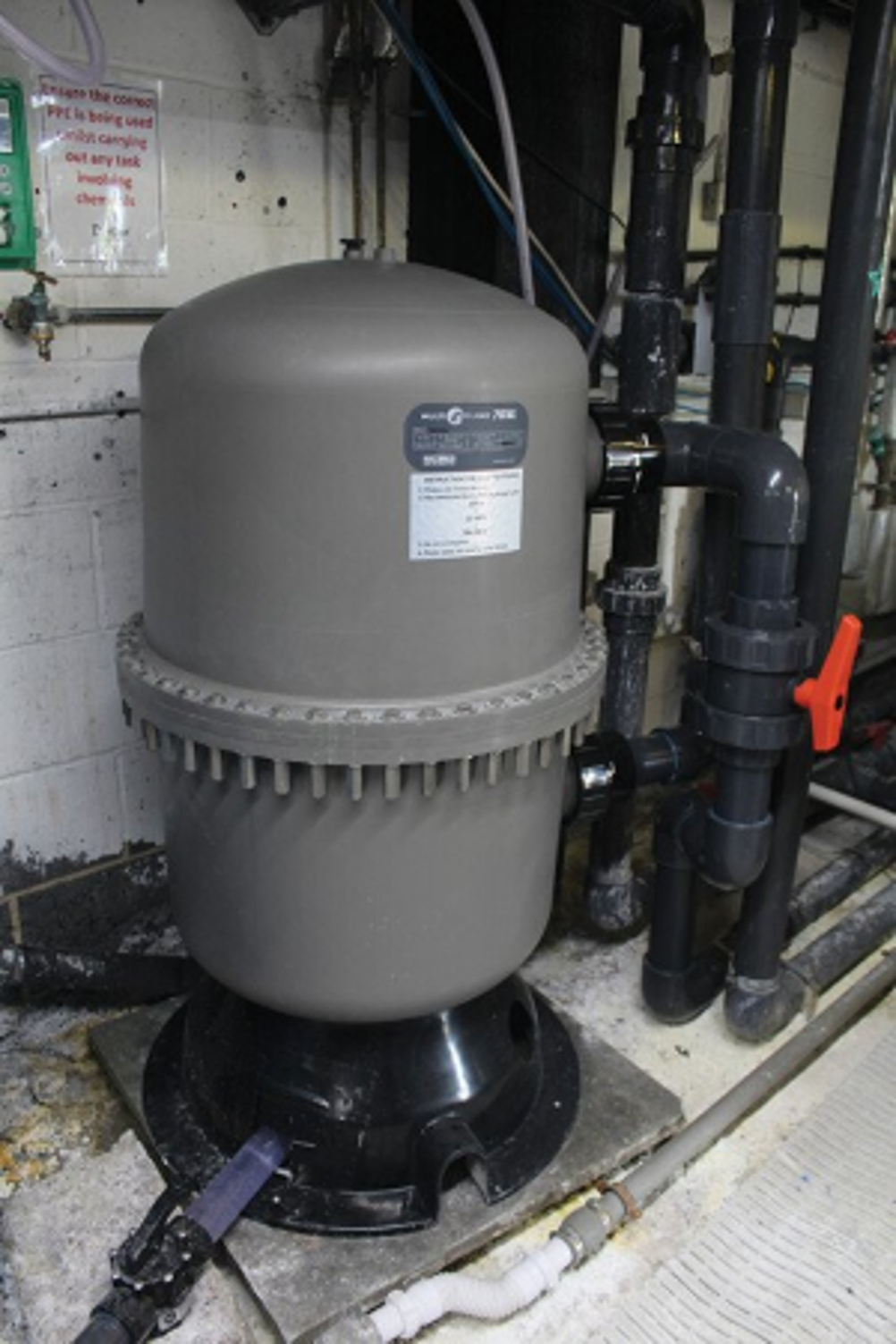They are an essential part of family holidays but a poorly maintained swimming pool can ultimately risk human health with regular water maintenance essential.
Significantly, 80% of this is carried out by filtration with the remainder made up of cleaning products via mechanical or chemical treatment.
Filtration in tandem with suitable pumps ensures that the water is clear with the removal of suspended particles and prevents algae forming.
Outdoor pools are particularly susceptible to a wide range of pollutants from animal and bird droppings to human urine, faeces and mucus to chemical contaminants such as sunscreen and cosmetics.
According to Danish pool filtration specialist LiqTech, the average swimmer adds 30–80 ml of urine every time they use a pool meaning a busy commercial facility could contain several liters of urine.
Chlorine provides disinfection but can produce unwanted reactions that can lead to the formation of chloramines which can be hazardous to health, highlighting the need for effective filtration.

Technological developments
There are a growing number of filter types used in swimming pools with significant technological developments in recent years alongside traditional sand, cartridge and diatomaceous earth (DE) filters.
Sand filters, first developed 200 years ago, involve the pool water being pumped through a tank filled with sand which captures debris and contaminants. Sand can filter particles as small as 10 microns and as contamination builds up, water flow is restricted meaning backwashing (reversing water back through the filter to flush it) is required. However, a properly maintained sand filter can last up to seven years.
Cartridge pool filters involve the use of a pleated polyester filter and capture contaminants as small as 10 microns. Cleaning is easier and more efficient than sand filters and they are inexpensive to replace with new cartridges required every two or three years.
Diatomaceous earth (DE) filters contain crushed aquatic fossils or diatoms which trap microscopic impurities as small as two microns such as dirt, algae and some bacteria and so are much more efficient than other filter types.
But they are expensive and require more maintenance with the filter grid having to be replaced every two to three years. DE powder can also be harmful requiring care when handling and can make backwashing problematic.
Silicon carbide
A newer type of filtration involves the use of ceramic membranes such as silicon carbide (SiC), a crystalline compound made of silicon and carbon, among the hardest materials in the world and so extremely durable and longlasting.
Filtration is effective down to three microns reducing the need for chemical disinfection by 30% and chlorine by 40% with 70% less water required for backwashing.
Also, ceramic membrane systems are up to 75% smaller than sand filter installations.
Total Pool Filtration (TPF) in the UK was appointed to install microfiltration at Stretford Sports Village, Manchester on behalf of Trafford Leisure. The existing filters had reached the end of their life and needed replacement.
Removal and replacement of conventional sand filters would have meant major construction work as part of the plant room roof would have to be removed and the pool closed which would have been costly.
TPF opted for a LiqTech ceramic membrane system featuring a filtration element of 146 x 800 mm covering an area of 7 sq m and a backwash consuming just 75 liters.
The facility remained fully open throughout the process whereas fitting sand filters would have meant the pool would have had to be closed for four weeks costing £50,000 (US$61,000).
Electricity bills have been cut by about £22,000 (US$27,000) a year thanks to greater pump efficiency and a reduced need for heating of top-up water while the amount of water used has been reduced by up to 87%, saving £12,000 (US$15,000). The amount of salt used for chlorine generation via electro-chlorination has also been reduced by 28% giving a further saving of £650 (US$800) a year.

Energy savings
Another type of filter, the OC-1 produced by Spanish pool manufacturer Fluidra, also contributes significant savings.
It consists of high density polyethylene to which calcium carbonate is added which the company says can remove particles as small as one micron while requiring fewer backwashes and a consistent flow means pumps can be run at slow speeds producing energy savings.

For example, the Willoughby Leisure Centre in New South Wales, Australia, has saved more than A$14,000 in electricity and one million litres of water per year since installation in 2017 as well as seeing an improvement in water quality.
A further alternative is the use of glass pearls geometrically shaped into a narrow particle size range of 0.6–0.8mm offering filtration of contaminants as low as three microns. Produced by Australian pool filter specialist Waterco, they require less backwashing and are safe to handle.
At the David Lloyd Leisure (DLL) facility in Southampton, UK, the sand filters were replaced with Waterco’s MultiCyclone filters and Glass Pearl filter media which are producing savings of about £1,000 a year as well as lower chemical consumption and reduced maintenance.
DLL plant room operative Andy Tucker said: “Not only is the clarity of the pool and spa water so much better but maintenance has been reduced significantly by eliminating the need for lengthy backwashing times. We really have seen an incredible difference.”

The importance of filtration media
Proper water treatment is the foundation for worry-free swimming pleasure and efficient pool operation. One frequently underestimated facet of this domain is filtration media. As a critical component of a pool’s mechanical system, filtration media are of paramount importance for health, safety, and the overall swimming experience.
Filtration media – whether it be quartz sand, anthracite or activated carbon – effectively impede the circulation of bacteria, algae and microparticles.
They play a significant role in mitigating the risk of waterborne illnesses, skin irritations, and eye complications. As such, filtration media directly contribute to the safeguarding of public health.
Furthermore, the clarity of pool water, an integral safety measure, is largely attributed to the efficacy of filtration media. By ensuring optimal visibility, potential pool hazards can be swiftly identified and addressed. This is particularly crucial in high-traffic public or commercial pools.
Finally, filtration media contribute to a pool’s aesthetic appeal and user satisfaction. The assurance of crystal clear water not only enhances the visual presentation of the pool but also augments user satisfaction by providing a superior swimming experience.
Investing in high-quality filtration media is not just a luxury – it’s a necessity for responsible pool management. Recognising their significance will contribute to ensuring healthier, safer aquatic environments.
Brenntag Water Treatment provides a comprehensive selection of filtration media for maintaining pool water in optimal condition.
About the author
This article was written by Andrew Smith, a freelance writer.
This article first appeared in the July 2023 issue of Filtration+Separation magazine. To read the full issue, click here.







